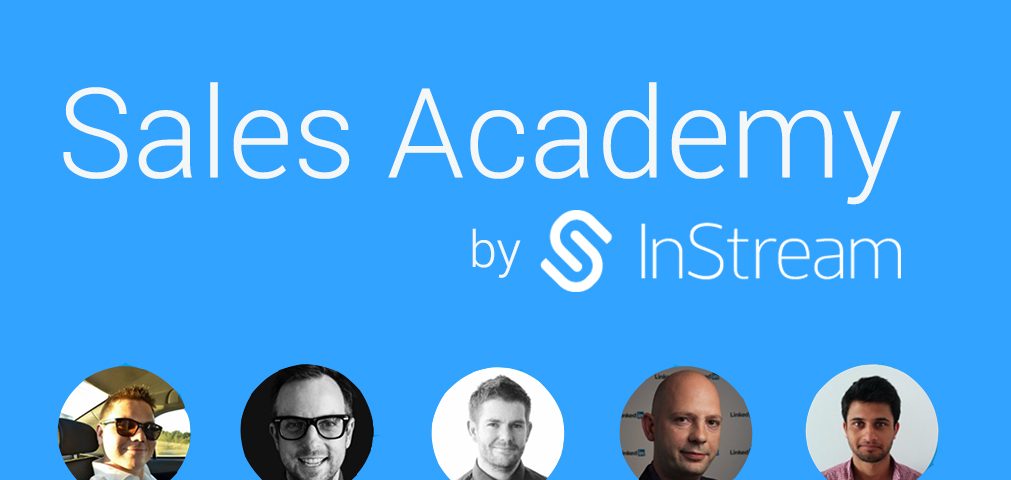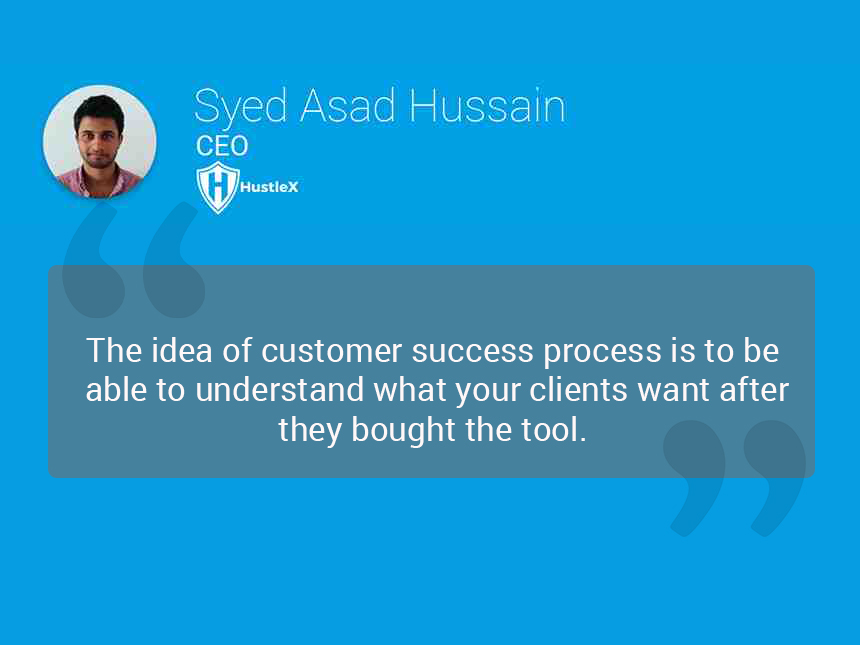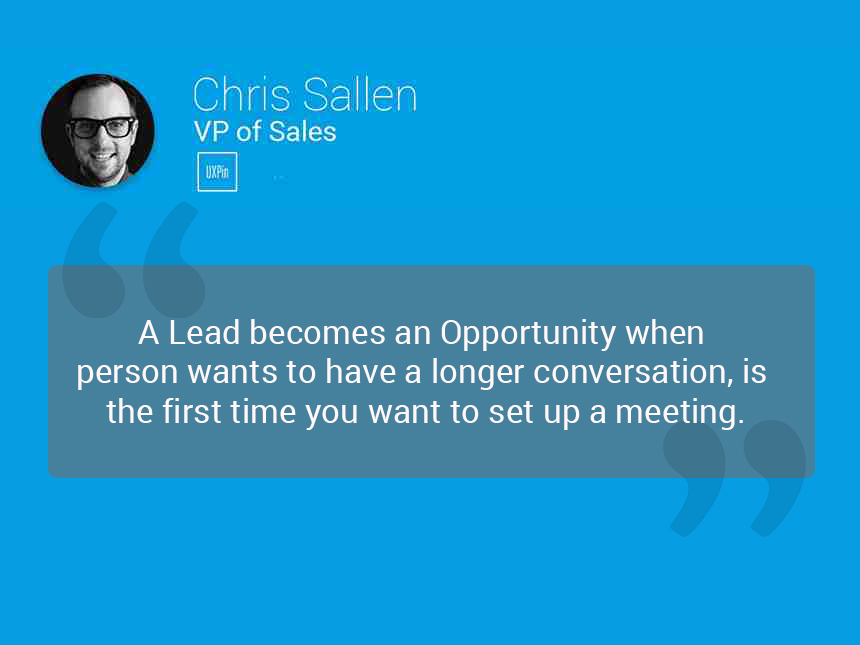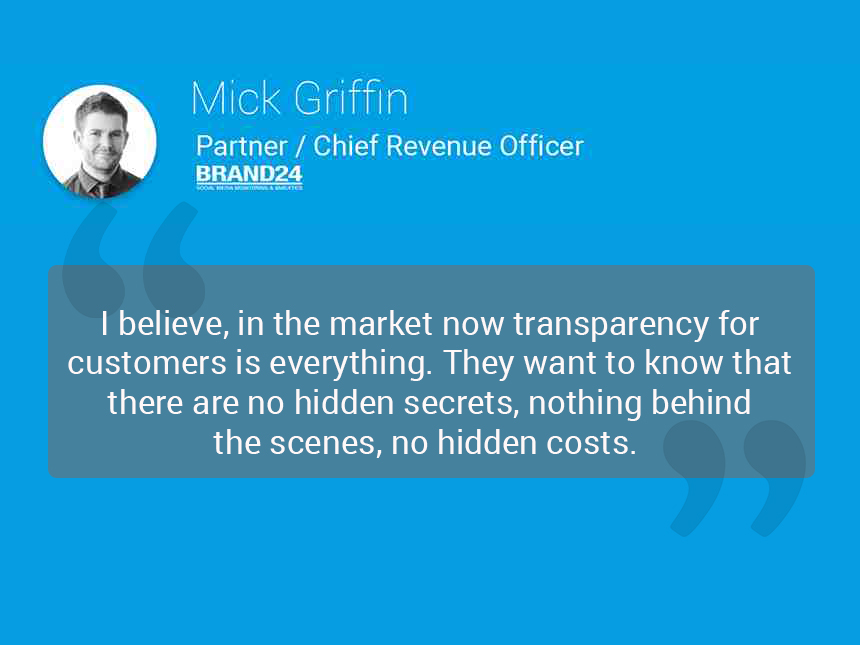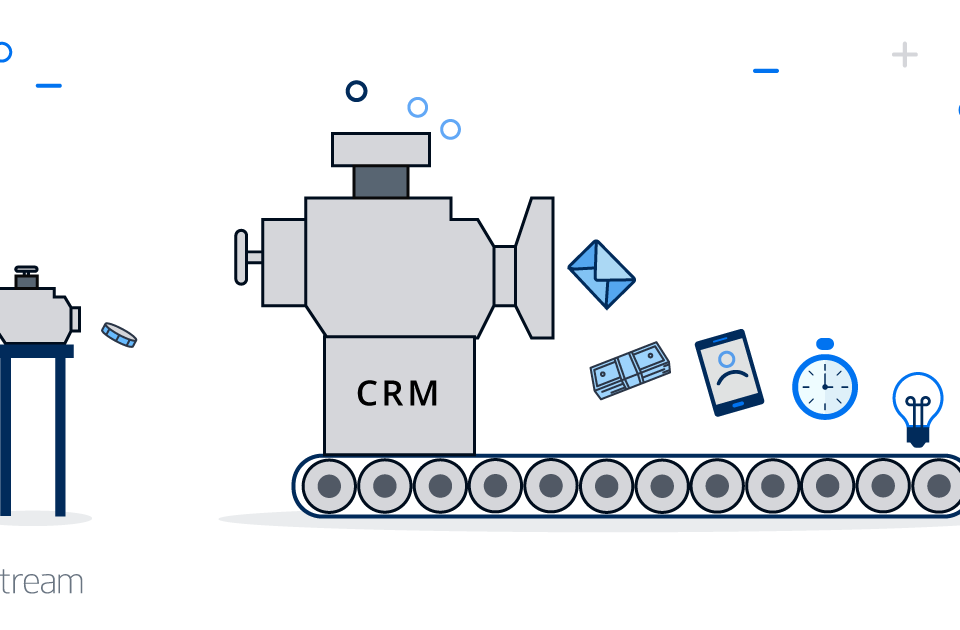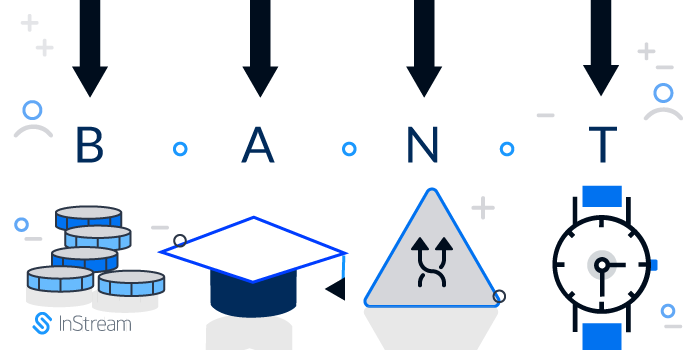What decides that some people are way more efficient sales reps than the others? When should you talk about your prices? How you should handle efficient, but not disciplined employee?
To help you answer that question I made an interview with top sales VPs from well-known big companies and fast-growing startups. Read what they think and share your opinion with me.
Filip Duszczak (InStream CEO): What do you understand as a Customer Success Process?
Chris Sallen (UXPin): There is a lot of Operational KPIs which usually are very time-based like time to first response, resolution time. Those things are great, but a lot of times what I find is that listening to your customers and what they say at first is not the most important to them. What is you may discover after listening to them for some time? You may find that it’s not that speed of the service, it’s the quality, the comprehensiveness of the answer.
Bartosz Majewski (RightHello): Situation when a client receives the value that he pays for, ideally even a little more than that, because once it’s happened the client is willing to buy more from you, continues buying, for example renewing the subscription or buying another item. It all boils down to being able to lead to that point. And this is where all the magic – namely Customer Success – starts.
Syed Asad Hussain (HustleX): The idea for customer success process from my point of view is to be able to understand what your clients want after they buy the tool. A lot of time what happens is that when we’re selling to clients they understand the tool better by the time they buy it, their needs change and what you want is to solve their problems, the new ones that’s occur. You want also to educate your clients – hey, this is where we’re at, that’s what we’re going towards, with that thing we’re going to be able to solve this.
Mick Griffin (Brand24): For me, a customer success process is when a customer has achieved success. So basically, it’s not just about us getting them through and spending their money; a good customer, a retaining customer that will stay with you forever is a customer that constantly needs your platform. So we invest in things like education to make sure a customer doesn’t just buy a tool, but buys a solution.
Piotr Mroziński (LinkedIn): It’s not easy to define, in fact, it’s an added value that your client achieves. Sometimes this process is a process that he goes through to achieve the highest possible value. You can be sure that when you build it the right way, the client will stay with you for a longer period of time.
FD: Imagine that the best salesman in your team instead of going for a business trip to talk to the client, spends time privately. However, he has the best sales results. You find out about this – what do you do?
MG (Brand24): I let him continue doing exactly what he’s doing. I work based on results, not based on hours or time spent anywhere. If you can hit your target and play golf three times a week, keep doing what you’re doing. If it’s not broken, don’t fix it. So, I highly recommend not overcomplicating situations. Salesmen are quite emotional people, so you have to live with them a little bit.
PM (LinkedIn): Sales is a team game. You can’t favor one person over another just because of the results. Apart from that, results are just one of the components of what we do and who we are as salesmen. I really don’t like when someone, does not respect their colleagues just because he or she has better results, or doesn’t want to share the success. I once had a situation when I was interviewing a person for a sales position. He had excellent results, and I asked him – OK, so how did your results translate into the situation of the whole team? Did you share your tricks so that your team could win, too? He responded ‘Of course not, I won’t tell them what I do, because they will score just as high as me.’ He hadn’t got the job.
SAH (HustleX): I believe that by working 15 to 16 hours a day I am burning myself out. That is the case for most CEOs, that is the case for most “entrepreneurs”. They’re burning themselves, they’re thinking about the company all the time. The idea is that I realized that after working a straight year I just crashed and burned. So if my sales rep is happy, is giving me results and a private vacation helps him get into his Zen back and recharge his batteries, it’s completely OK with me. He is part of the process, but if he is out, like if something happens to him, gone for a bit – it really won’t affect the process. If after vacation he is coming back with more motivation, more concentrated, with power to work, I’m committed to help him do that.
[Tweet “I belive that by working 15 to 16 hours a day I am burning myself out”]
BM (RightHello): Makes me think of all the things that are negative – I fire or reprimand him, I cut his bonus, something like that, but when I think about it – something could have happened – maybe illness in the family, or a friend needed help. I don’t believe in a clear-cut nature of this matter in a sense that usually situations like this are rare, which means they’re also unique, and usually each one of them is different. As a result, what I do is probably, the moment I find out about it – that also plays a role, how I found out and after what time – I talk to this person and then act according to the situation or data gathered; I would definitely not act impulsively.
ChS (UXPin): You can either – as a sales person –work your ass off and hit your number, do your best work as hit your number, you can work your ass off really hard and miss your number, you can also sit on your ass and do nothing and miss your number, or you can sit on your ass and do nothing and hit your number. What I’m looking for are folks who are going to do their best work. So there is a result and then there is the how did you get there, it’s a missed opportunity.
FD: When in your opinion a ‘Lead’ becomes an ‘Opportunity’?
PM (LinkedIn): The moment you qualify it. The moment you understand that your product, your service is able to add value. If it is, then sooner or later it will translate to sales and then it becomes an Opportunity. You can close it, reopen it, come back to it after six months, talk for another twelve. When you know that this is … value, a Lead becomes an Opportunity.
ChS (UXPin): The first time person wants to have a longer conversation is the first time you want to set up a meeting.
SAH (HustleX): A Lead becomes an Opportunity when I understand fully what their problem is and how we can solve it.
[Tweet “A Lead becomes an Opportunity when I understand fully what their problem is and how we can solve it.”]
BM (RightHello): Whether the customer has at least as much money as is necessary to buy our smallest package. If not, then there’s no use continuing the conversation, we’ll be saving both ours and our client’s time. On the other hand, there is Authority, and it’s very often mistaken by salesmen for a position. Just because someone is a CEO doesn’t mean they have Authority. Sometimes CEOs need, for example, contracts … or need, for example, over fifty thousand zlotys for their decision to be … by the supervisory board … because it’s sometimes in the contract’s regulations. In the case of leads? it’s quite simple: if someone reached out to us, is talking to us, reading our emails and so on, they likely see us as a solution to a problem, or as some chance for another raise. So the need is there. Time Frame is, in turn, something that salesmen often forget about completely. So asking a client ‘for when do you need us?’ – if you have the money, you have the power to make a decision, and you have a need. So when – we can do it by next quarter or next year. The moment we control how their decision-making process looks like – whether they are decisive, have money, have a need and when they have it, then we can talk about a qualified lead.
MG (Brand24): For me, this is our qualification stage, and this is when you know that, you believe that the lead has an opportunity to use your system and then they show you the same interaction, so you must’ve started some kind of conversation. So the lead has to return the conversation, but not only return it, but show that yes, we were right to think that they had some value from our tool.
FD: When is the right moment to talk to the client about your service’s cost?
BM (RightHello): There is no one right answer. On the one hand, we can show costs on our website. That way customers have a chance to see it right away. On the other hand, there are situations when sharing costs by both sides is not possible, because we sell a personalized service, whose value ranges from a thousand up to five million. Situations like this do happen, although rarely. You need to adjust it to the client, the target group, the personalization of the service.
MG (Brand24): From my point of view, this is something that should be done as soon as possible. I believe, in the market now transparency for customers is everything. They want to know that there are no hidden secrets, nothing behind the scenes, no hidden costs. So the more open, upfront you are about it, the more confident you are about your costs, the more the customer will believe the value that you made is correct. So, you know, we call it a frictionless process, so brands now that we see like “contact us for a quote?”, this is becoming less and less popular because people want to know before they invest their time.
PM (LinkedIn): I avoid overrating my abilities. If I wanted a solution that is beyond your organization’s budget, you’re not able to do it, you’re just not able to go that way at the moment. Why are you having a conversation? So try to adjust the cost of your product as quickly as possible. It doesn’t mean that you have to ask ‘do you have a budget?’. ‘No, I don’t’ – OK, end of the conversation, no. Talking, starting a conversation, you should think about whether a solution you’re offering is going to fit the budget of the organization you’re talking with. I never ask about the budget. It’s completely irrelevant. If I know that, what I offer for your organization, is going to have a positive impact, I also know that you will somehow fit it to the budget.
[Tweet “If I know that, what I offer for your organization, is going to have a positive impact, I also know that you will somehow fit it to the budget.”]
SAH (HustleX): There are two ways: one if the lead is inboundish, which is pretty much all the leads in the world now because you reach out to people who come to your website to see who you are and they also check your pricing. On the other hand, you talk to people be after you understand their problems. Hey, well, this is your problem – we’ve got a solution that can solve your X problem. Now, how is your process like? Do you have a budget already? Do you want to get a budget approved? So you kind of start hitting them softly and then you come to the price one. So our visitors or clients or opportunities, or whatever you want to call them, fall into three buckets, which is two thousand dollars, five thousand dollars or ten thousand dollars. So which one feels the most comfortable for you? This one, that one? Well, actually, you know, five thousand kind of sounds about like three. I think that’s the best way to build them up and warm them up to that situation in which you can ask the money question.
ChS (UXPin): I don’t talk about pricing at all until very deep, after understanding the needs. And I actually don’t break that up separately. What I do is I have one all-encompassing price for technology services’ everything and then I list that, and that price includes one number only.
If you want to see full interview watch this short video.


